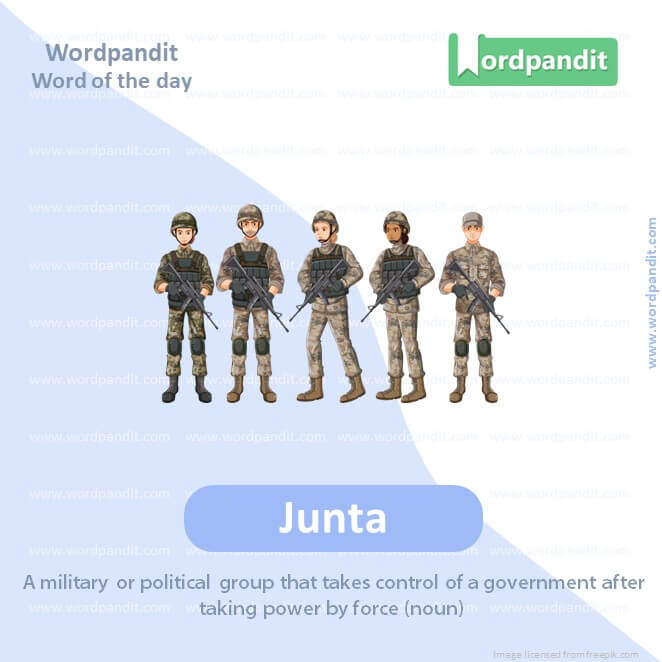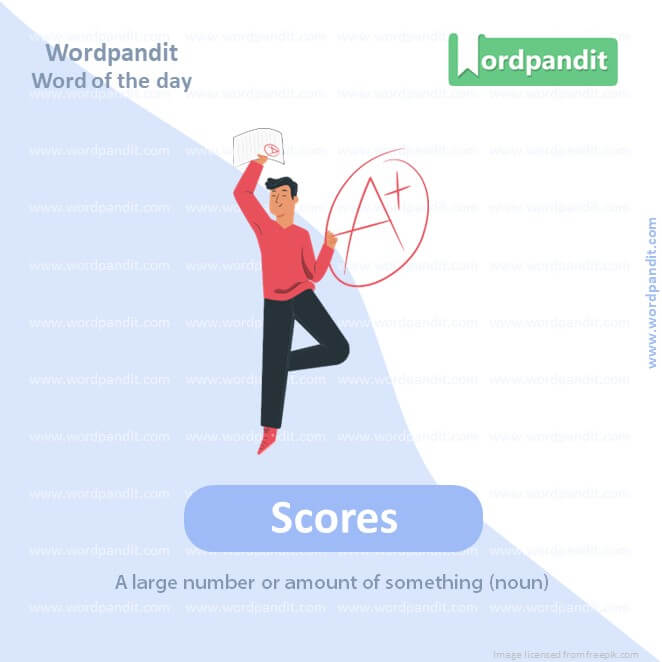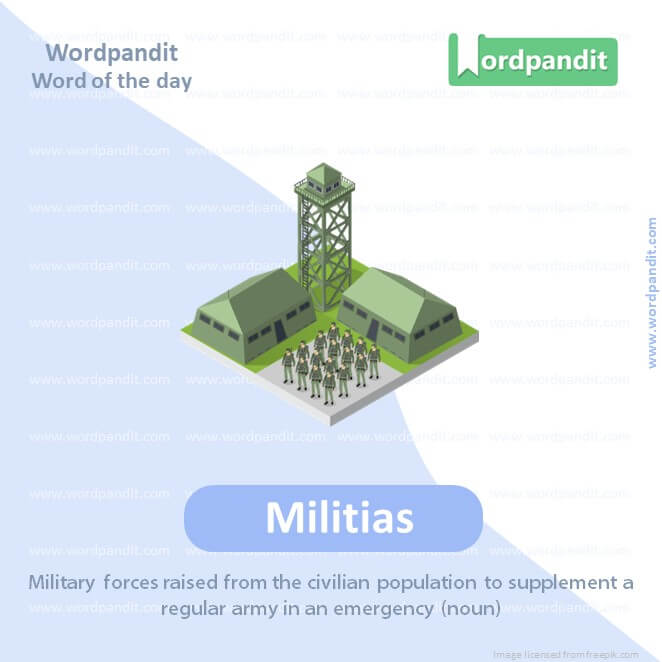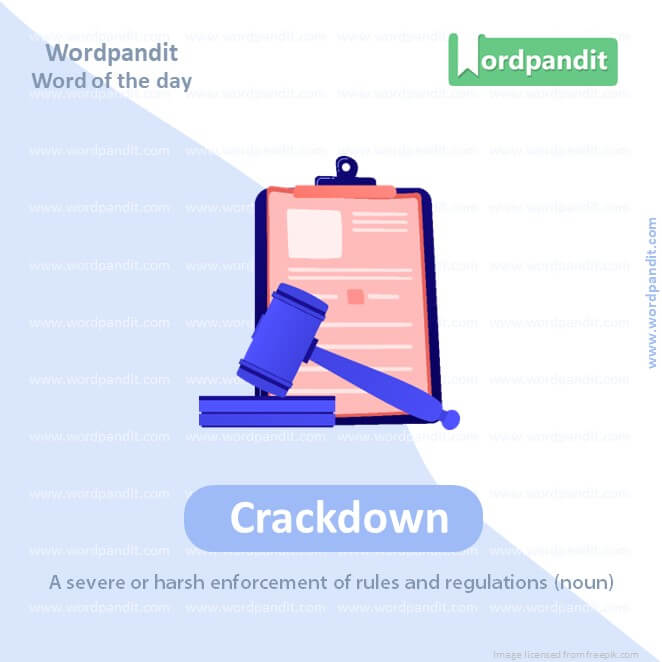Daily Vocabulary Words: List of Daily Used Words
Hi there. Welcome to this special section @ Wordpandit.
Our endeavour here is straightforward: highlighting important daily vocabulary words, you would encounter in The Hindu. This is your repository of commonly used words; essentially, we are posting a list of daily used words. Hence, this has significant practical application as it teaches you words that are commonly used in a leading publication such as The Hindu.
Visit the website daily to learn words from The Hindu.

WORD-1: Rejuvenation
CONTEXT: There seems to be a rejuvenation in the hopes for a return to democracy in Myanmar if recent events in the civil war are anything to go by. The Tatmadaw (the junta) has never had a bigger challenge until now since its February 2021 coup that ousted the National League for Democracy-led government.
SOURCE: The Hindu
EXPLANATORY PARAGRAPH: Imagine your favorite toy is old and not working well. Then, someone fixes it, and it’s like new again! That’s what rejuvenation is like. It’s when something gets refreshed or renewed, making it better or more lively.
MEANING: The process of making someone or something look or feel better, younger, or more vital (noun).
PRONUNCIATION: ree-joo-vuh-nay-shun
SYNONYMS: Renewal, Revival, Restoration, Regeneration, Refreshment, Resurgence, Revitalization
USAGE EXAMPLE:
1. The spa trip was a rejuvenation for her tired body and mind.
2. The garden’s rejuvenation brought vibrant colors back to the landscape.
3. After the renovations, the old building underwent a complete rejuvenation.
4. The holiday served as a much-needed rejuvenation for the overworked team.

WORD-2: Junta
CONTEXT: There seems to be a rejuvenation in the hopes for a return to democracy in Myanmar if recent events in the civil war are anything to go by. The Tatmadaw (the junta) has never had a bigger challenge until now since its February 2021 coup that ousted the National League for Democracy-led government.
SOURCE: The Hindu
EXPLANATORY PARAGRAPH: Imagine a group of people who take over a country’s government, usually without being chosen or elected. That’s a junta. They make decisions and rules for the country.
MEANING: A military or political group that takes control of a government after taking power by force (noun).
PRONUNCIATION: hun-ta
SYNONYMS: Regime, Faction, Clique, Cabal, Council, Directorate, Government
USAGE EXAMPLE:
1. The junta seized control of the government after a sudden coup.
2. Human rights groups were concerned about the rise of the military junta.
3. The junta implemented strict new laws to maintain its power.
4. The international community condemned the actions of the junta.
WORD-3: Coup
CONTEXT: There seems to be a rejuvenation in the hopes for a return to democracy in Myanmar if recent events in the civil war are anything to go by. The Tatmadaw (the junta) has never had a bigger challenge until now since its February 2021 coup that ousted the National League for Democracy-led government.
SOURCE: The Hindu
EXPLANATORY PARAGRAPH: Think about a surprise move in a game that changes everything suddenly. A coup is like that, but in real life. It’s a quick, unexpected action where a small group tries to take over the government.
MEANING: A sudden, violent, and illegal seizure of power from a government (noun).
PRONUNCIATION: koo
SYNONYMS: Overthrow, Takeover, Revolution, Rebellion, Insurrection, Mutiny, Uprising
USAGE EXAMPLE:
1. The army led a coup to overthrow the government.
2. News of the coup spread rapidly across the country.
3. The coup was planned in secrecy and executed overnight.
4. After the coup, the military established a new regime.
WORD-4: Ousted
CONTEXT: There seems to be a rejuvenation in the hopes for a return to democracy in Myanmar if recent events in the civil war are anything to go by. The Tatmadaw (the junta) has never had a bigger challenge until now since its February 2021 coup that ousted the National League for Democracy-led government.
SOURCE: The Hindu
EXPLANATORY PARAGRAPH: Imagine playing a game of musical chairs, and someone has to leave their chair and the game. Being ousted is like that. It means someone is forced to leave their place or position.
MEANING: Driven out or removed from a position or place (verb).
PRONUNCIATION: ow-sted
SYNONYMS: Expelled, Dismissed, Ejected, Removed, Dethroned, Banished, Deposed
USAGE EXAMPLE:
1. The CEO was ousted after the scandal.
2. He was ousted from the club for breaking the rules.
3. The leader was ousted in a dramatic political struggle.
4. Voters ousted the incumbent in the recent election.

WORD-5: Scores
CONTEXT: The violence now and reverses suffered by the ruling junta point to a new phase in the war. Ever since the launch of coordinated attacks by the Three Brotherhood Alliance (TBA) in late October, the junta has lost scores of bases and is being stretched thin as its forces have to battle opposition militias, especially in rural areas of the country.
SOURCE: The Hindu
EXPLANATORY PARAGRAPH: Scores are like a bunch of things counted together. Like when you have a lot of candies, and you count them in groups, each group is a score.
MEANING: A large number or amount of something (noun).
PRONUNCIATION: skorz
SYNONYMS: Multitude, Plenty, Abundance, Loads, Masses, Heaps, Numerous
USAGE EXAMPLE:
1. Scores of people attended the concert.
2. She achieved scores of awards in her career.
3. Scores of books filled the library shelves.
4. The game ended with scores of fans celebrating.

WORD-6: Militias
CONTEXT: The violence now and reverses suffered by the ruling junta point to a new phase in the war. Ever since the launch of coordinated attacks by the Three Brotherhood Alliance (TBA) in late October, the junta has lost scores of bases and is being stretched thin as its forces have to battle opposition militias, especially in rural areas of the country.
SOURCE: The Hindu
EXPLANATORY PARAGRAPH: Imagine a group of people who are not professional soldiers, but they train and have weapons to fight or protect their place. This group is called a militia.
MEANING: Military forces raised from the civilian population to supplement a regular army in an emergency (noun).
PRONUNCIATION: mi-lish-uhz
SYNONYMS: Paramilitary, Guerrillas, Reservists, Cadets, Volunteer Army, Defense Force, Armed Force
USAGE EXAMPLE:
1. Local militias were called to defend the town.
2. The government provided training to the militias.
3. The militias played a key role in the regional conflict.
4. He joined a militia to protect his community.

WORD-7: Crackdown
CONTEXT: The junta sought to overcome the protests following the coup with crackdowns besides detaining NLD leaders in its attempt to reverse the changes in Myanmar’s polity since its controlled democratisation in 2010. But this has only led to the NLD and its allies, which formed a National Unity Government (NUG) in exile, creating rebel militias called the Peoples’ Defense Forces, who along with Karen, Kachin, Chin and Karenni ethnic forces took on the junta even as their political representatives engaged in a dialogue platform for Myanmar’s federal and democratic charter.
SOURCE: The Hindu
EXPLANATORY PARAGRAPH: Think of a time when rules are made stricter and people who break them get into more trouble. That’s what a crackdown is. It’s when people in charge get really tough on rule-breaking.
MEANING: A severe or harsh enforcement of rules and regulations (noun).
PRONUNCIATION: krak-daun
SYNONYMS: Clampdown, Suppression, Repression, Enforce Strictly, Restraint, Control
USAGE EXAMPLE:
1. The police began a crackdown on speeding.
2. The government announced a crackdown on illegal trading.
3. There was a major crackdown on corruption in the city.
4. The new policy led to a crackdown on environmental violations.
WORD-8: Detaining
CONTEXT: The junta sought to overcome the protests following the coup with crackdowns besides detaining NLD leaders in its attempt to reverse the changes in Myanmar’s polity since its controlled democratisation in 2010. But this has only led to the NLD and its allies, which formed a National Unity Government (NUG) in exile, creating rebel militias called the Peoples’ Defense Forces, who along with Karen, Kachin, Chin and Karenni ethnic forces took on the junta even as their political representatives engaged in a dialogue platform for Myanmar’s federal and democratic charter.
SOURCE: The Hindu
EXPLANATORY PARAGRAPH: Imagine someone not letting you leave a place, like when a teacher makes you stay in class during recess. Detaining is when someone is kept in a place and not allowed to leave.
MEANING: Keeping someone in official custody, typically for questioning about a crime or in politically sensitive situations (verb).
PRONUNCIATION: di-tayn-ing
SYNONYMS: Holding, Confined, Imprisoning, Restraining, Incarcerating, Capturing, Arresting
USAGE EXAMPLE:
1. The police are detaining several suspects for questioning.
2. He was detained at the airport for additional security checks.
3. The activists were detained for protesting.
4. Detaining the witness was crucial for the investigation.
WORD-9: Rebel
CONTEXT: The junta sought to overcome the protests following the coup with crackdowns besides detaining NLD leaders in its attempt to reverse the changes in Myanmar’s polity since its controlled democratisation in 2010. But this has only led to the NLD and its allies, which formed a National Unity Government (NUG) in exile, creating rebel militias called the Peoples’ Defense Forces, who along with Karen, Kachin, Chin and Karenni ethnic forces took on the junta even as their political representatives engaged in a dialogue platform for Myanmar’s federal and democratic charter.
SOURCE: The Hindu
EXPLANATORY PARAGRAPH: Think of someone who doesn’t like following rules and often fights against them. That’s a rebel. They don’t agree with what the leaders or rules say and try to change them.
MEANING: A person who opposes and fights against a government or leader (noun).
PRONUNCIATION: reb-uhl
SYNONYMS: Insurgent, Revolutionary, Dissident, Mutineer, Renegade, Protester, Agitator
USAGE EXAMPLE:
1. The rebels took control of the northern part of the country.
2. She was known as a rebel in her youth, always challenging authority.
3. The government tried to negotiate with the rebels.
4. Rebels attacked the military base at dawn.
WORD-10: Federal
CONTEXT: The junta sought to overcome the protests following the coup with crackdowns besides detaining NLD leaders in its attempt to reverse the changes in Myanmar’s polity since its controlled democratisation in 2010. But this has only led to the NLD and its allies, which formed a National Unity Government (NUG) in exile, creating rebel militias called the Peoples’ Defense Forces, who along with Karen, Kachin, Chin and Karenni ethnic forces took on the junta even as their political representatives engaged in a dialogue platform for Myanmar’s federal and democratic charter.
SOURCE: The Hindu
EXPLANATORY PARAGRAPH: Think about a big team that has smaller teams in different places, all working together. Federal is like that. It’s about a government where a big country is divided into smaller areas, but they all work together as one big country.
MEANING: Relating to the central government of a country, as opposed to the governments of individual states or regions (adjective).
PRONUNCIATION: fed-er-uhl
SYNONYMS: National, Central, Governmental, Statewide, Official, Public, Countrywide
USAGE EXAMPLE:
1. The federal government announced a new education policy.
2. Federal laws apply to all states in the country.
3. The case was moved to federal court.
4. He worked for a federal agency.
Vocabulary
Language is a confluence of thoughts, emotions, and experiences that find vibrant expression through words. In this spectrum, ‘vocabulary’ shines as a critical aspect that shapes and directs our language proficiency. It offers depth, nuance, and clarity to our expressions. However, mastering ‘vocabulary’ is an art that requires a strategized approach.
An intensive strategy for learning ‘vocabulary’ goes beyond the limiting precincts of memorization. Instead, it nudges learners towards comprehension and application. To understand ‘vocabulary’, take a step forward from traditional textbooks and classroom sessions, and embrace the vast world of books, articles, podcasts or digital content in the language you are learning. This step allows you to understand words in context, see how they are used in different situations, and absorb words as part of the natural flow of language.
As you journey through ‘vocabulary’, remember that this expedition should not be a race. Rather, it’s a marathon where pacing yourself is pivotal to long-term success. Learning a few words each day and consolidating your knowledge through regular revision tends to be more effective, as it prevents cognitive overload and promotes solid retention.
Interactive learning tools can provide valuable support in assimilating ‘vocabulary’. Use of flashcards, language-learning apps, or memory-enhancing software can make this process more engaging and effective, reinforcing the ‘vocabulary’ in your memory.
Lastly, practice is an incontrovertible part of mastering ‘vocabulary’. Utilize the learnt vocabulary in your daily conversations, write-ups, or presentations to ensure an active application. Doing this fosters recall and cements understanding.
In summation, learning ‘vocabulary’ is a journey that should be embraced with an integrated approach, where understanding and application are the key elements. By engaging with diverse learning resources, pacing the learning process, employing interactive learning tools, and practicing regularly, the journey of mastering ‘vocabulary’ becomes a fulfilling and enriching experience.













